Aliens, abstraction and Thomas Kinkade: An L.A. exhibition summons the spiritual and the fantastical
Pass through the doors of Nicodim Gallery in Los Angeles and you may think you have entered the astral plane.
In one room are feathered costumes and alien paintings produced by the Unarius Academy of Science, the 6-decade-old El Cajon spiritual group that believes in reincarnation and the channeling of knowledge from alien beings. In another is a spiraling wall piece attributed to the seminal Dadaist Marcel Duchamp.
“The Basilisk,” as this exhibition is called, is no ordinary show.
Curated by Aaron Moulton, who serves as the creative director at Venus gallery (across the street from Nicodim), this otherworldly installation takes universal symbols of light and dark and assembles them in a single, cosmic show. And it is wonderfully jarring.
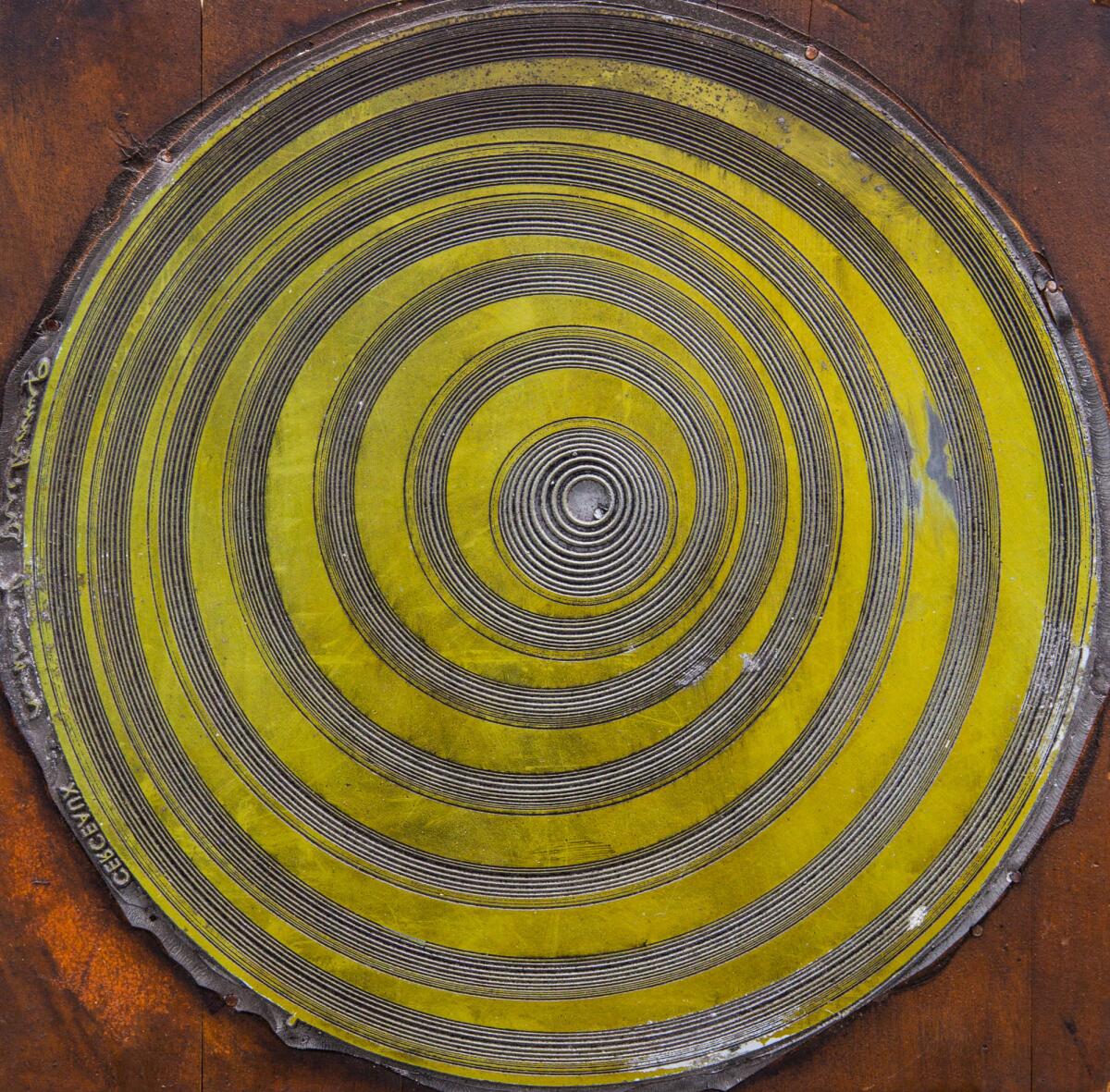
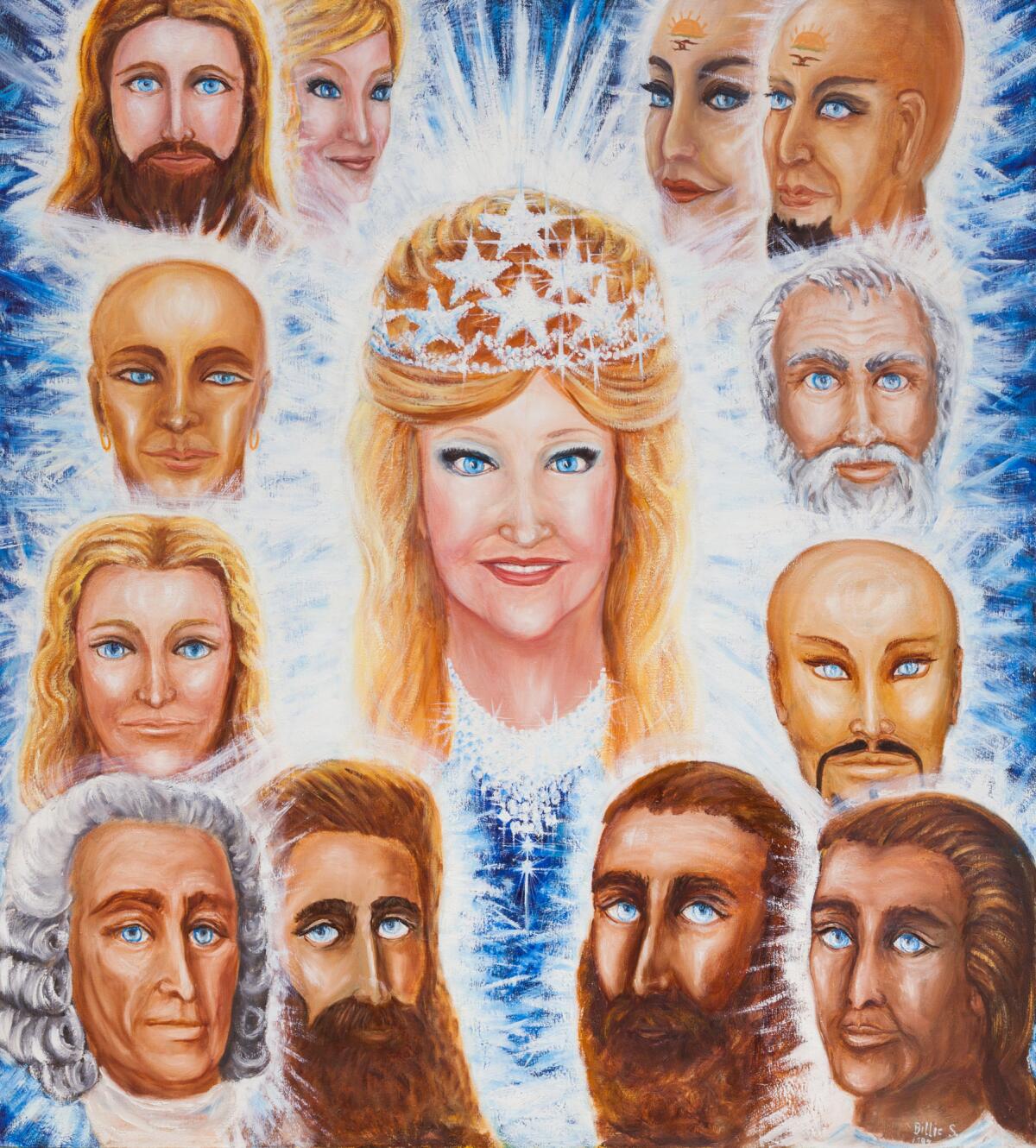
There are paintings by Monarca Lynn Merrifield — who claims to have been contacted by alien beings — that combine Christian imagery with extraterrestrial invasion. One room over is a video work of a sun by artist Diana Thater, who in 2015 had a one-woman installation at the
Moulton said he was interested in finding the ways seemingly disparate works might share common mystical ground. Abstraction and paintings of aliens can both contend with issues of existence and being, for example. Or there might be shared symbols, such as the spiral or circumpunct (a dot with a circle around it), markings that make appearances in myriad cultures.
“These archetypal energy systems run through the human project and go across culture and time,” Moulton says. “So thinking of evil and light and this idea of magical thinking — these things that we personify with the boogeyman or god or a shaman or the priest — this show is that.”
“[It] is really about exploring the idea of a universal aesthetic experience,” he adds. “It’s an aggressive term at a time when we’ve hyper-specified the human experience. But I believe we are very simple animals who look at light and dark.”
The exhibition at Nicodim is inspired by temple design. It is a progression of spaces and works that lead to a place that is designed to channel “true light.”
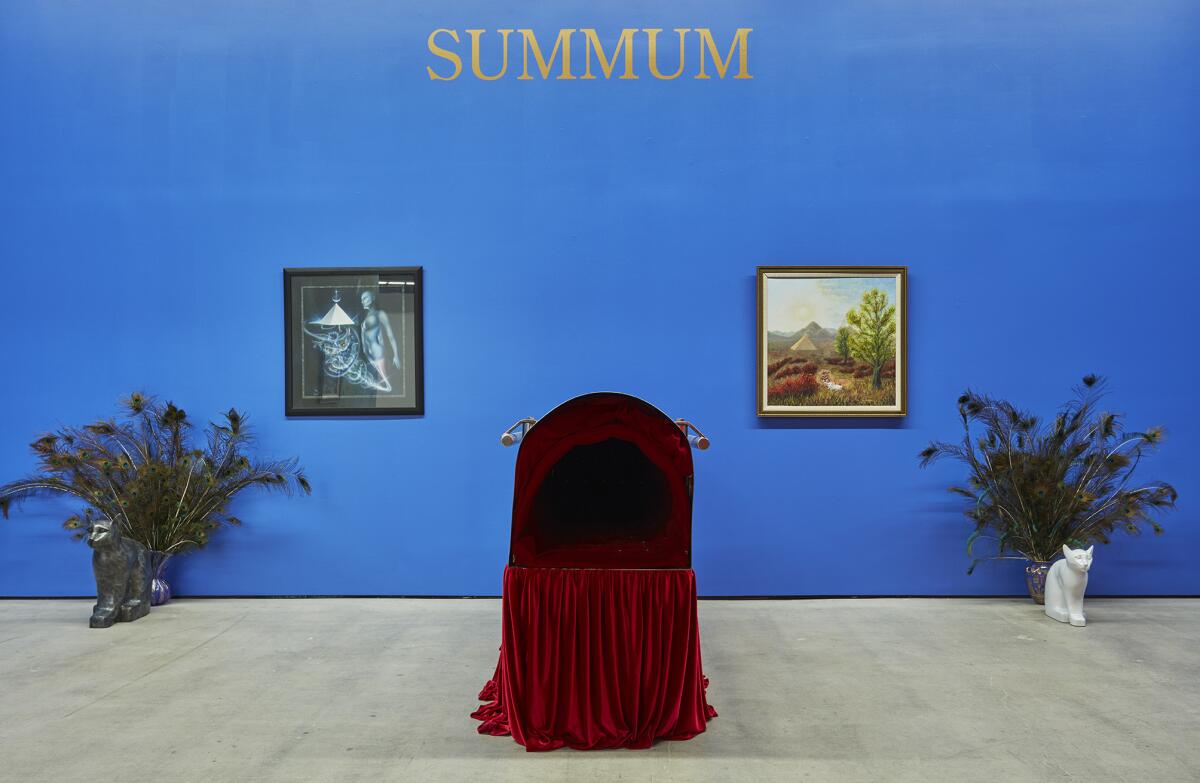
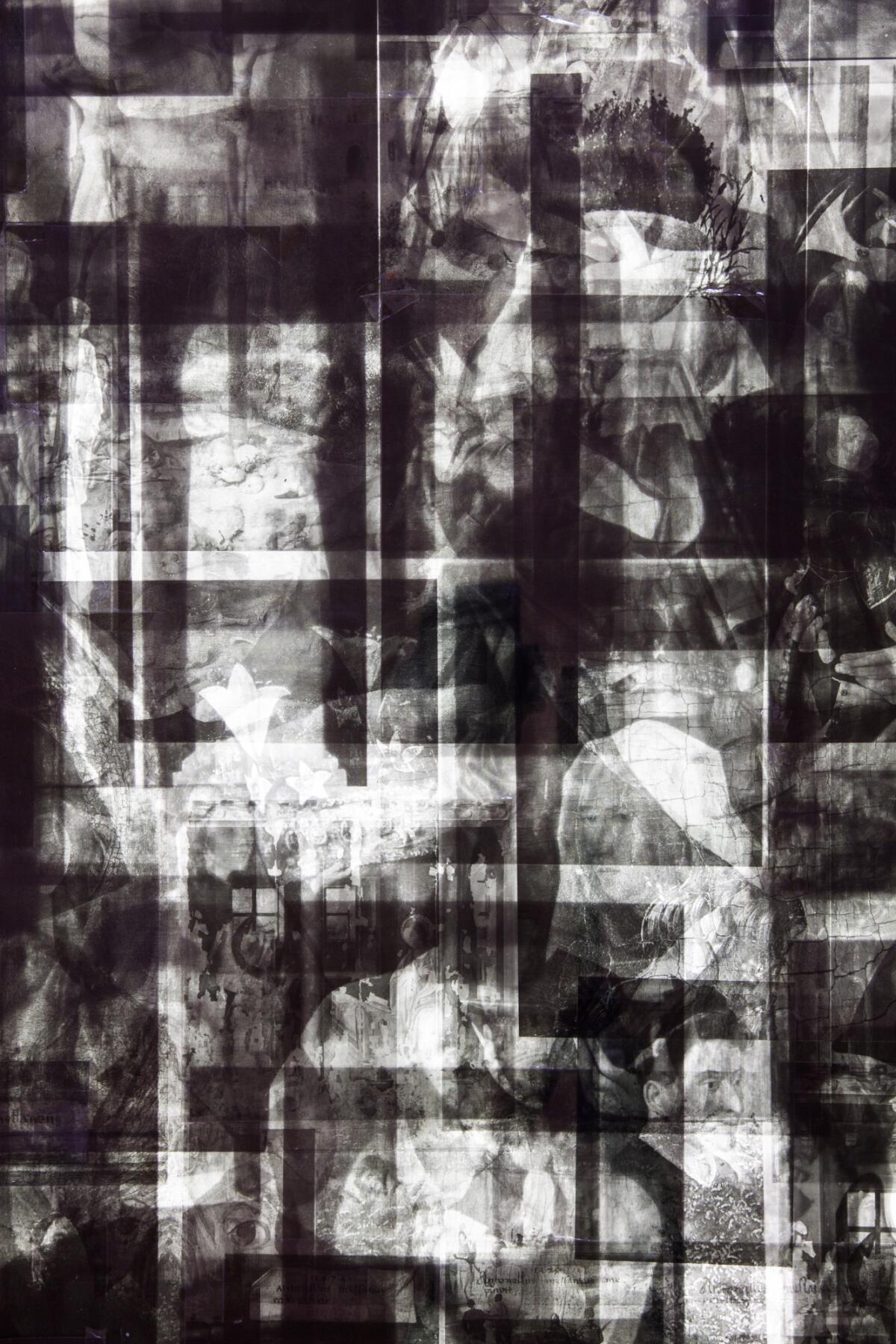
“The Basilisk” is the second in a three-part series of esoteric exhibitions that the curator is organizing for Nicodim. The first, held last year, was titled “Omul Negru,” and examined questions of evil and how it is personified. “The Basilisk,” says Moulton, “is all about coming from darkness and seeking the light — the push-pull between the two.”
And the third, which is scheduled to go on view at Nicodim’s Romanian branch in June (the gallery has spaces in Los Angeles and Bucharest), takes as its point of inspiration the Hierophant, the card from the tarot deck that shows a figure with two fingers pointing toward heaven and two pointing down.
“It’s the idea of the person who reveals the sacred,” says Moulton. “The priest, the guru, the madman, the charlatan.”
The series of shows is not some wink-wink-ironic juxtaposition of high-low. In fact, Moulton doesn’t much care for the idea of breaking culture out into those sorts of categories.
“To call Thomas Kinkade a ‘low’ artist is a real stating of privilege,” he says. “Kinkade is an important artist. He’s just not important to the art world, just because it doesn’t appeal to their agendas.”
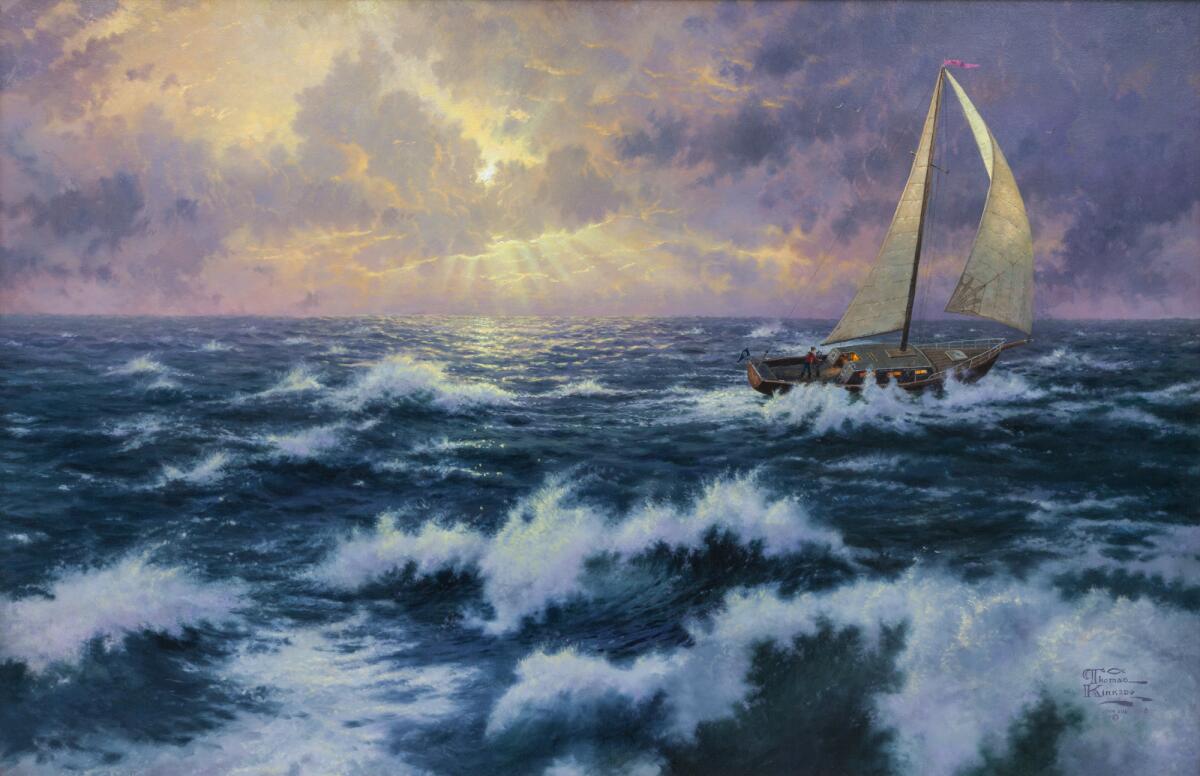
Instead, for Moulton, the exhibitions are about putting together objects from across various aspects of the human experience in a way that explores the yearnings of faith. Optical art mixes with sacred painting mixes with abstract contemporary art mixes with aliens in a way that feels electrically charged.
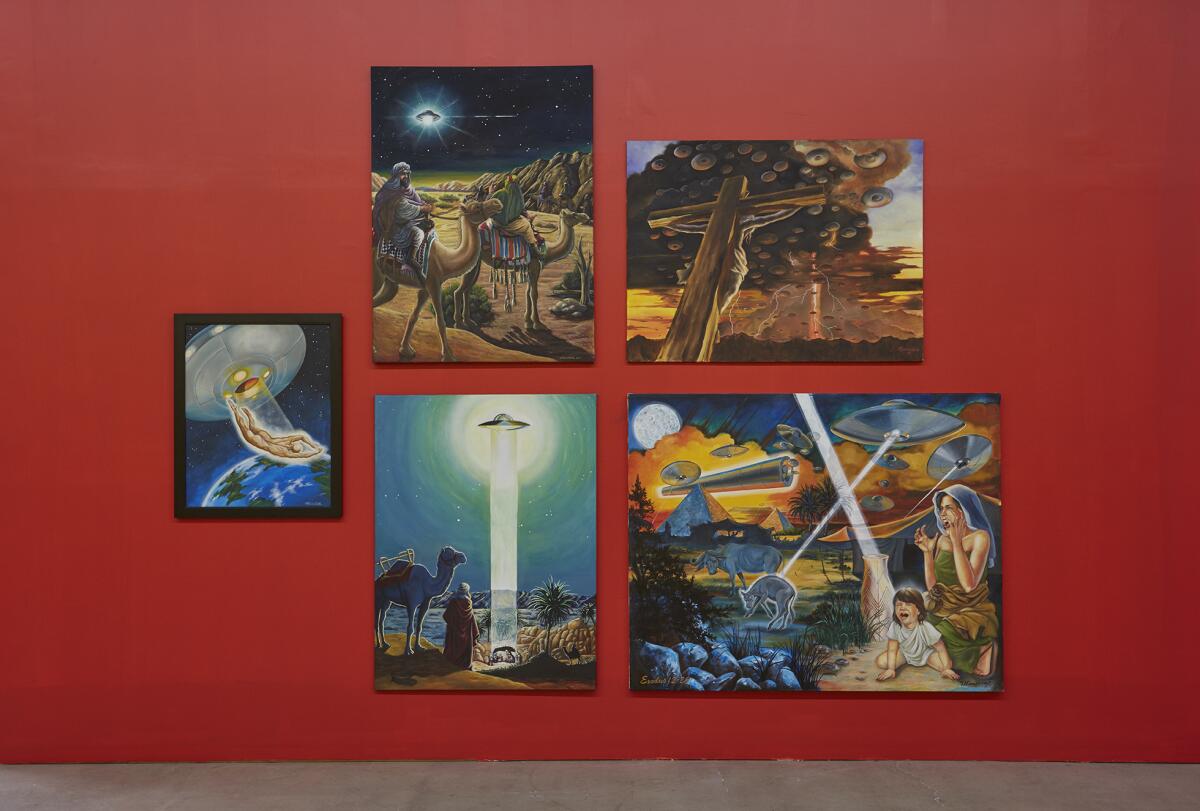
In this way, the curator has sought to bring together the folklore of faith, be it that of the Unarians or artists with degrees from UCLA.
“Folklore is an enduring language,” Moulton says. “Folklore is what we all come back to.”
“Really, it’s in these moments when truth falls apart that you have the greatest spiritual awakenings.”
‘The Basilisk’
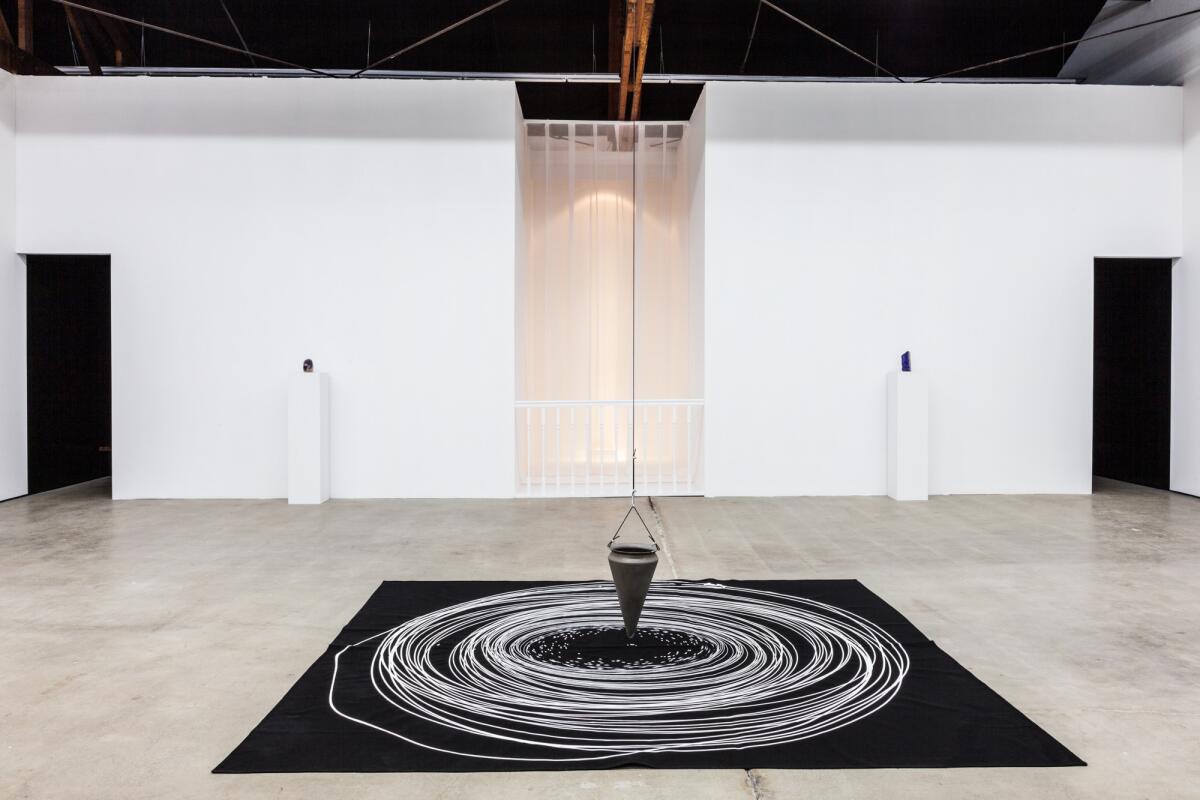
Where: Nicodim Gallery, 571 S. Anderson St. Boyle Heights, Los Angeles
When: Through May 27
Info: nicodimgallery.com
Sign up for our weekly Essential Arts & Culture newsletter »
The biggest entertainment stories
Get our big stories about Hollywood, film, television, music, arts, culture and more right in your inbox as soon as they publish.
You may occasionally receive promotional content from the Los Angeles Times.








